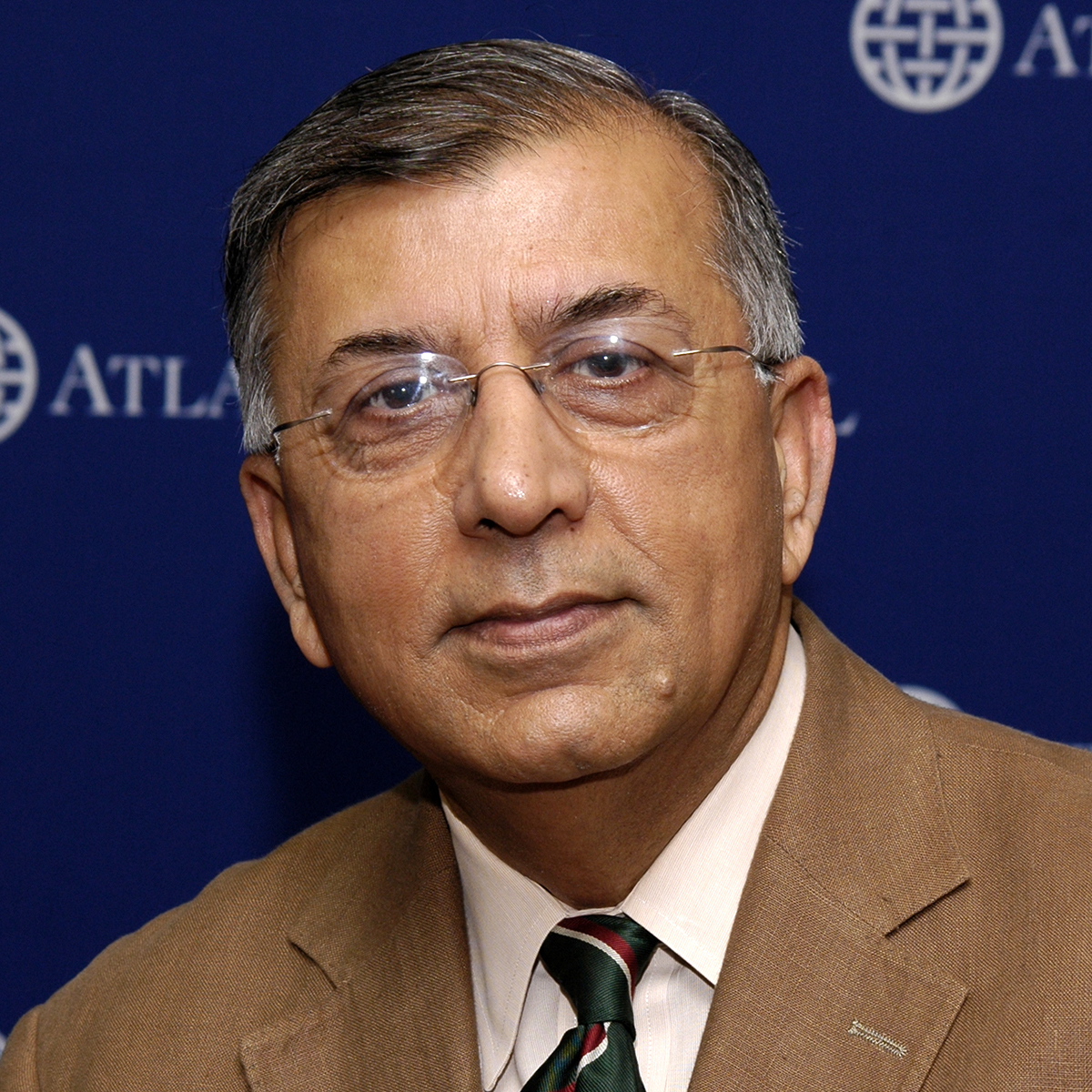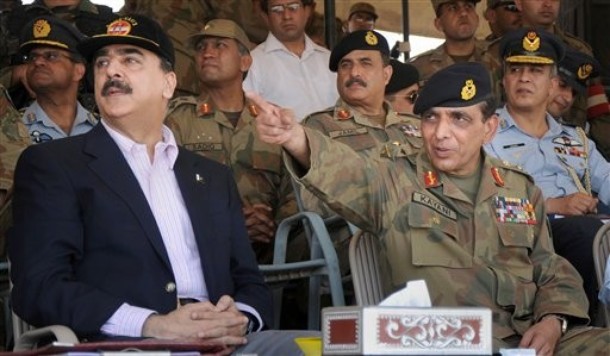JUDY WOODRUFF: And for more on what the leaked documents reveal about the Pakistani government’s relationship is with the Taliban and what they might mean for relations with the United States, we get two views.
Stephen Cohen is a senior fellow the Brookings Institution and the author of numerous books about Pakistan, India and South Asia. And Shuja Nawaz is the director of the Southeast Asia Center at the Atlantic Council. He’s a former journalist and author of a book about the Pakistani military.
Gentlemen, thank you both for being with us.
STEPHEN COHEN, senior fellow in Foreign Policy Studies, Brookings Institution: Good to be with you, Judy.
JUDY WOODRUFF: Stephen Cohen, to you first. What about what the ambassador said, that relations between Pakistan and the United States government are improving, despite this WikiLeaks episode?
STEPHEN COHEN: I think they’re getting better.
You have a government in Pakistan now that is possibly the best government Pakistan has ever had. That’s not saying very much, because what you have in Pakistan is a country that is simply coming apart at the seams. The state has been dismantled by the military, among others.
But I think he’s right that there’s close cooperation between the two countries. Our interests in Pakistan are not only in Afghanistan, but also in Pakistan itself. And I think that’s an important point.
JUDY WOODRUFF: And when he says the government of Pakistan is not officially in any way supporting or aiding the Afghan Taliban, what about that?
STEPHEN COHEN: I think question is whether the government of Pakistan is capable of not supporting the Taliban, simply looking the other way when they come over.
There’s a lot what I call the ISI alumni association, a lot of unofficial cooperation with the Taliban from Pakistan. So, I think that the government may not have the capacity to actually stop the Taliban. And they don’t have an interest in stopping them. They are fighting both sides of this war. They are supporting the Americans, but they’re also supporting the Taliban, because they want to make sure, when there’s a peace settlement in Afghanistan, that their interests are protected.
JUDY WOODRUFF: So, Shuja Nawaz, you heard what the ambassador said. He said there’s no official support, but he also acknowledged that there may be private interests who are supporting. How do you square the two things?
SHUJA NAWAZ, Atlantic Council: Well, it’s always existed that way in Pakistan.
There is, as Steve said, what he calls the alumni association. There is the ex-ISI officials, their group, as well as the other militant groups that have set up franchise arrangements with al-Qaida, as well as with the Taliban. They serve their purpose and certainly provide assistance to them.
JUDY WOODRUFF: And does that give the government the ability, in effect, to deny that they’re supporting? How does that work?
SHUJA NAWAZ: Well, there is no evidence of official support. And the government obviously wouldn’t wish to be involved in any such activities.
The question really is, can they prevent these activities from taking place, which means effectively sealing the border between the Federally Administered Tribal Area and Pakistan, which is a very difficult task at best.
JUDY WOODRUFF: Steve Cohen, we did hear the ambassador say that the government views these activities as illegal, and he said, we have gone after individuals who have been engaged in this.
STEPHEN COHEN: It’s the question of the capacity of the Pakistan government to stop what is patently illegal activities. And it’s a weak capacity.
In Punjab, for example, there are groups that are raging against the state. And the police can’t do anything about them. In the Northwest Frontier, it’s even wilder. So, the Pakistan government has lost much of the capacity to actually enforce its own law. He compared this with the United States, but maybe some parts of the South 50 years ago, but it’s not like America now.
JUDY WOODRUFF: But is it getting better, as he said…
STEPHEN COHEN: I think this is a work in progress. I think, at the top, the change is there. Certainly, Haqqani’s party and the prime minister and the president of Pakistan all want a change.
And I think there may be — there’s good evidence that the head of the military want a change. But whether they can turn the ship, it is like moving an ocean liner. It’s hard to just simply change policy on a dime. We have trouble doing it ourselves, but I think Pakistan has less capacity than almost any other state in the region, except Afghanistan.
JUDY WOODRUFF: Shuja Nawaz, help us understand the threat that Pakistan feels from India vs. the threat it feels from the Taliban, and what may be left after the United States leaves Afghanistan.
SHUJA NAWAZ: I think the Indian capacity on Pakistan’s eastern border is always the one that threatens Pakistan, something like nine corps poised against Pakistan, well over 30 strike airfields within reach of Pakistan.
But I also believe that, in recent years, the insurgency inside the border has really become the existential threat to Pakistan, increasingly recognized as such by the military and by the politicians, and that, within the last 18 months, the military has transformed itself from effectively a conventional force into a fairly effective counterinsurgency force.
The training, the operations, the fact that they have committed something like 150,000 troops to the insurgency is evidence of their commitment.
JUDY WOODRUFF: But connect the dots from that, if you would, to the Taliban in Afghanistan.
SHUJA NAWAZ: The Afghan Taliban, as Steve said, really represent more of support for the Pashtun elements in Afghanistan.
And we have to recall that the Taliban are Pashtun, but not all Pashtun are Taliban. And because these tribes are — stride the border with Afghanistan — they straddle the border, they receive support from inside Pakistan. And so there is and always has been a kind of implicit Pakistan support for the Pashtun movement inside Afghanistan.
JUDY WOODRUFF: Steve Cohen, how does all this complicate what the United States is trying to do in Afghanistan?
STEPHEN COHEN: Well, half of us are fighting a war in Afghanistan in Afghanistan, but there’s also consideration of the impact of the war in Afghanistan on Pakistan.
And my own view is that Pakistan is by far the more important of the two in the long run. It’s a nuclear weapons state. It’s a major state that is sort of losing integrity as a state. Afghanistan has its problems, will always have its problem. Pakistan is a more serious problem.
But I don’t think we have been able to unite this even within our government. I think we’re sort of bipolar disorder. Both the Pentagon and the State Department have different bureaus and different agencies dealing with Pakistan and India, for example. I don’t think we have a regional approach to the region. We don’t have an integrated approach to it.
JUDY WOODRUFF: And do you think these WikiLeaks documents that have come out in the last few days — what’s their bearing on that?
STEPHEN COHEN: No, I think they’re really irrelevant.
But what they will do — irrelevant to policy — what they will do is drive policy-makers to stop putting things on paper. And that will make it harder to — for — to establish a record of what was done. Any time the government has these leaks, it closes down and closes in. So, there will be more verbal communication about policy, rather than written communication.
JUDY WOODRUFF: Shuja Nawaz, how do you see the effect of this WikiLeaks episode?
SHUJA NAWAZ: I think they add a lot of noise and confusion to the dialogue.
And, despite the best efforts of policy-makers in the United States and in Pakistan to stay committed to the current path, which is that of collaboration and cooperation, there will be a lot of internal second-guessing. There will be a lot of soul-searching and seeing whether they have in fact connected all the dots, and is one side being duplicitous or is the other being duplicitous.
JUDY WOODRUFF: Is there anything the United States can do to counter what you have just described?
SHUJA NAWAZ: I think the U.S. needs to stay the course.
The fact that it is now providing medium- and long-term assistance to Pakistan, once that assistance starts arriving, will convince the people in Pakistan that the U.S. is committed to the region. It will not leave the region in a precipitate manner. That’s critical.
JUDY WOODRUFF: And a quick last word.
STEPHEN COHEN: I’m less concerned about Pakistani attitudes towards the United States, and more concerned about the integrity of the Pakistani state.
I wouldn’t mind it if they hated us, as long as they were able to take care of their own business and run a normal state. And I think that’s the longer — longer, more deeper process we face.
JUDY WOODRUFF: Tough questions, all.
Steve Cohen, Shuja Nawaz, thank you both.
SHUJA NAWAZ: Thank you.
STEPHEN COHEN: Thank you.

